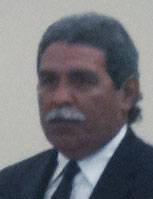Friday, Sept. 24, 2010 | 2 a.m.

Dwight Jones

Michael Hinojosa
Sun archives
- Superintendent candidates differ on views of empowerment schools (9-22-2010)
- Finalist for superintendent withdraws from consideration (9-20-2010)
- School District names 3 finalists for superintendent (9-16-2010)
- Jim Rogers out of contention for schools superintendent (9-14-2010)
- School District to keep superintendent until January (8-4-2010)
- School District chooses search firm to replace superintendent (6-1-2010)
- School District plans meetings on superintendent search (5-11-2010)
Sun Coverage
If the members of the Clark County School Board, which is looking for a new superintendent, wanted a sharp contrast between the two finalists for the job, they got it during interviews Thursday.
Dwight Jones, Colorado’s education commissioner, tended to answer questions; Michael Hinojosa, the Dallas school superintendent, tended not to.
Hinojosa, exuberant, evoked smiles and laughter with his anecdotes. Jones — occasionally colloquial and at one point emotional — evoked mostly nods of agreement.
And Jones seemed to feel the hot breath of the public’s scrutiny of both finalists who seek to lead the hugely troubled district. “There’s not a lot of space for a honeymoon,” he said.
Meanwhile, the selection process quickened, partly because Hinojosa might drop out, which a third finalist did Monday.
The Dallas Morning News reported late Thursday that the Dallas School Board voted 5-4 to extend Hinojosa’s contract for three years. The vote was a “largely symbolic” show of support, the paper said, because his contract lasts until 2012. There was no immediate word from Hinojosa on whether he would stay in Dallas.
The Clark County board, aware of the imminence of the Dallas vote, unanimously agreed Thursday to attempt to vote on the finalists as early as Wednesday.
The board had previously set a mid-October deadline so the new superintendent could arrive before the state Legislature, which holds the purse strings for the state’s public schools, convenes in February.
If board members can’t decide on Jones or Hinojosa, they probably will ask for three new candidates from the search firm McPherson & Jacobson of Omaha, Neb., adding weeks or perhaps months to the search.
The third finalist in this round, James Browder, the superintendent in Lee County, Florida, dropped out to take a job at a community college in Florida, his home state.
The remaining finalists spent nearly all Wednesday meeting board members informally and listening to parents and key constituencies, such as the teachers union.
On Thursday morning, both finalists — Jones, 48, and Hinojosa, 54 — did not seem weary, although Jones apologized if he sounded a bit hoarse. He did.
During their interviews with the seven-member board, the candidates were masters of the jargon of education and the buzzwords of “empowerment,” “transparency” and “challenges.”
Both also used “folks” a lot and Hinojosa said “y’all.” They acknowledged public criticism in their home cities and said they weren’t perfect.
Hinojosa, perhaps the more controversial of the two, discussed his biggest mistake: overspending by $64 million in the Dallas School District’s 2007-08 budget. It meant possibly 1,000 layoffs, many teachers.
“It was not pretty,” he said.
Through attrition, early retirement and other budget strategies, he said, he reduced the layoffs to 500. And he replaced his chief financial officer, who had no experience with specialized accounting systems for schools, with one with 30 years of experience, he said.
“It was an embarrassment,” Hinojosa said. “I felt terrible.”
He added later, “it’s not what happens to you, it’s how you react.”
Most board members asked the same questions of both candidates, usually along the lines of: Give three examples of so-and-so and how that would apply to Clark County.
Hinojosa responded with pointed, often amusing, anecdotes that rarely provided examples or showed their connection to Clark County.
Even when asked if it would be difficult for him to break his contract with Dallas, Hinojosa replied that some accommodation could be reached with the Dallas board. And that somehow produced another anecdote, this one about the time someone recognized him on the street and, perhaps because of his white mustache, asked if he had been in a “Got Milk?” commercial.
Jones also acknowledged mistakes. A U.S. Department of Education audit in February disallowed $24 million in personnel costs charged to federal grants. Jones said he quickly improved compliance.
But what stung, he said, is when the local media implied that he had abused his cell phone privileges by charging $700 in personal calls over three years to his school phone. He said he paid it back.
The original problem, he said, was that he hated carrying two cell phones, one for personal use and the other for official use.
When Jones was asked a question, he would usually reply to board members with something like: “if you will go to tab 6” in the binder presentation.
But Jones, who is black, dropped the crisp bureaucratese when board member Linda Young, who is also black, asked whether he had ever addressed racial and ethnic disparities in educational achievement.
“Yes,” he said. “And I’ll give you examples. Because I’ve lived it.”
He grew up in Kansas, where his father was a wheat farmer, and there were few black families.
Jones said he endured racial taunting and was “never invited to an overnight birthday party.” But his parents urged him to get an education.
“You get what the teachers have,” his father demanded. “And once you get it, they can never take it away from you.”

Join the Discussion:
Check this out for a full explanation of our conversion to the LiveFyre commenting system and instructions on how to sign up for an account.
Full comments policy